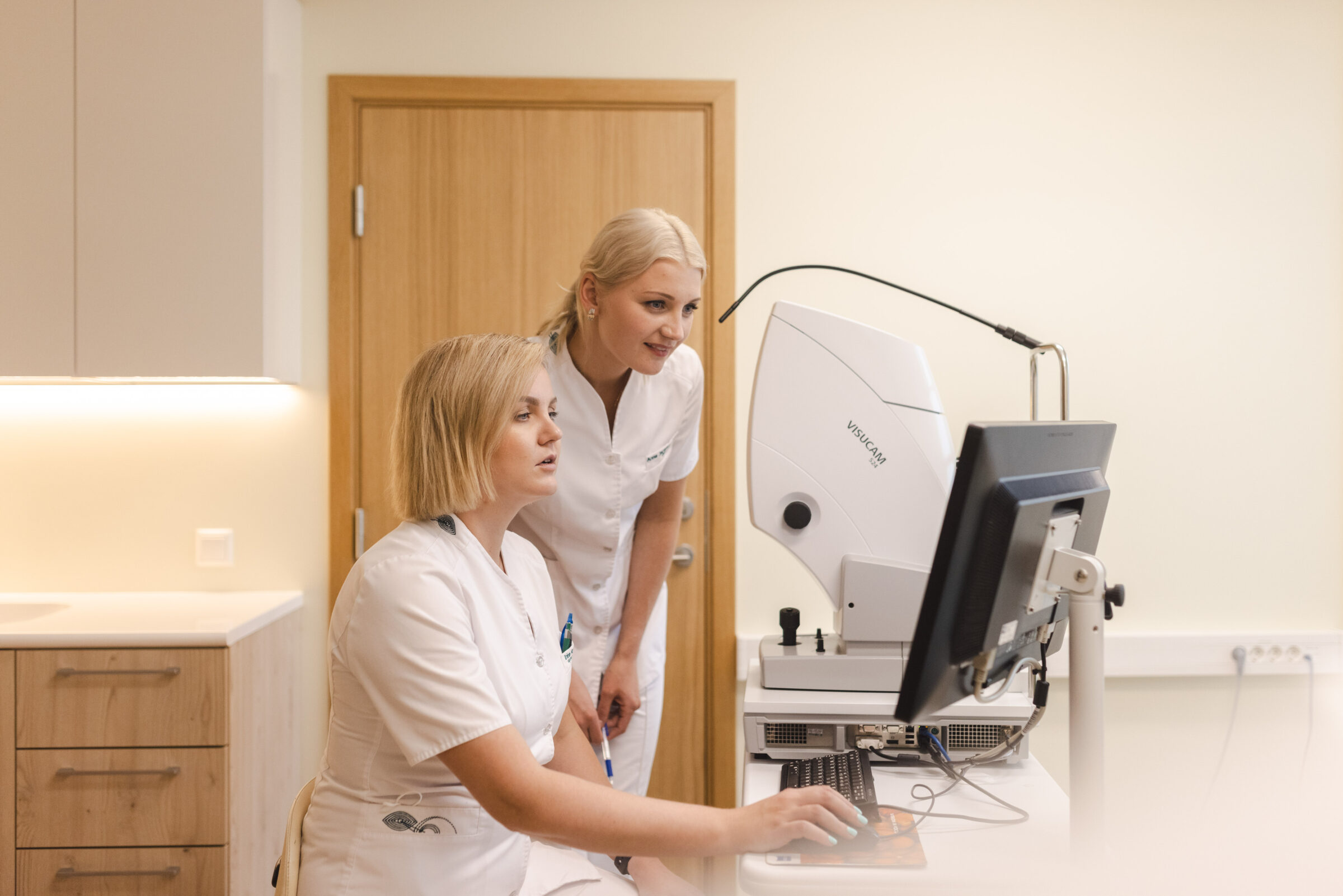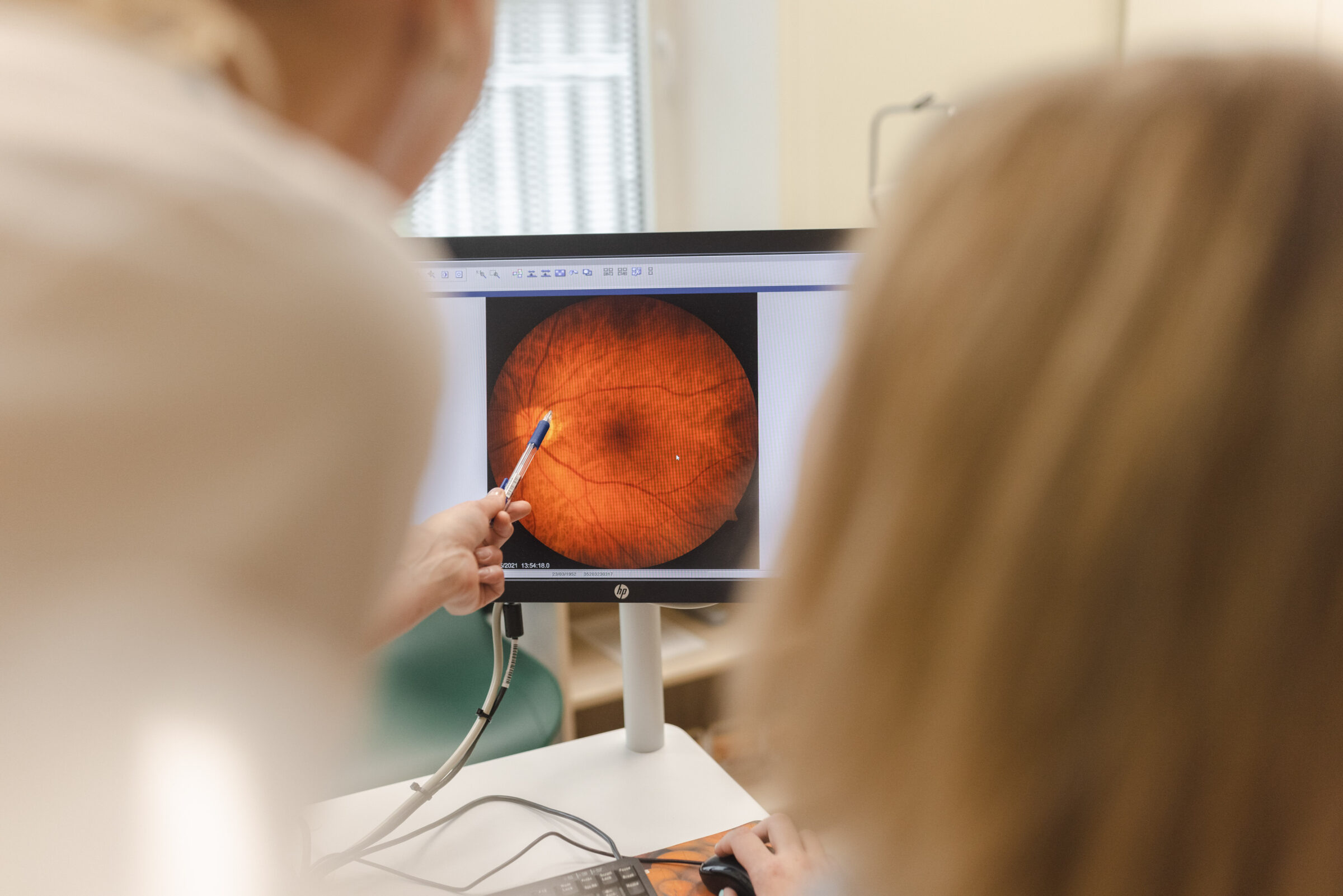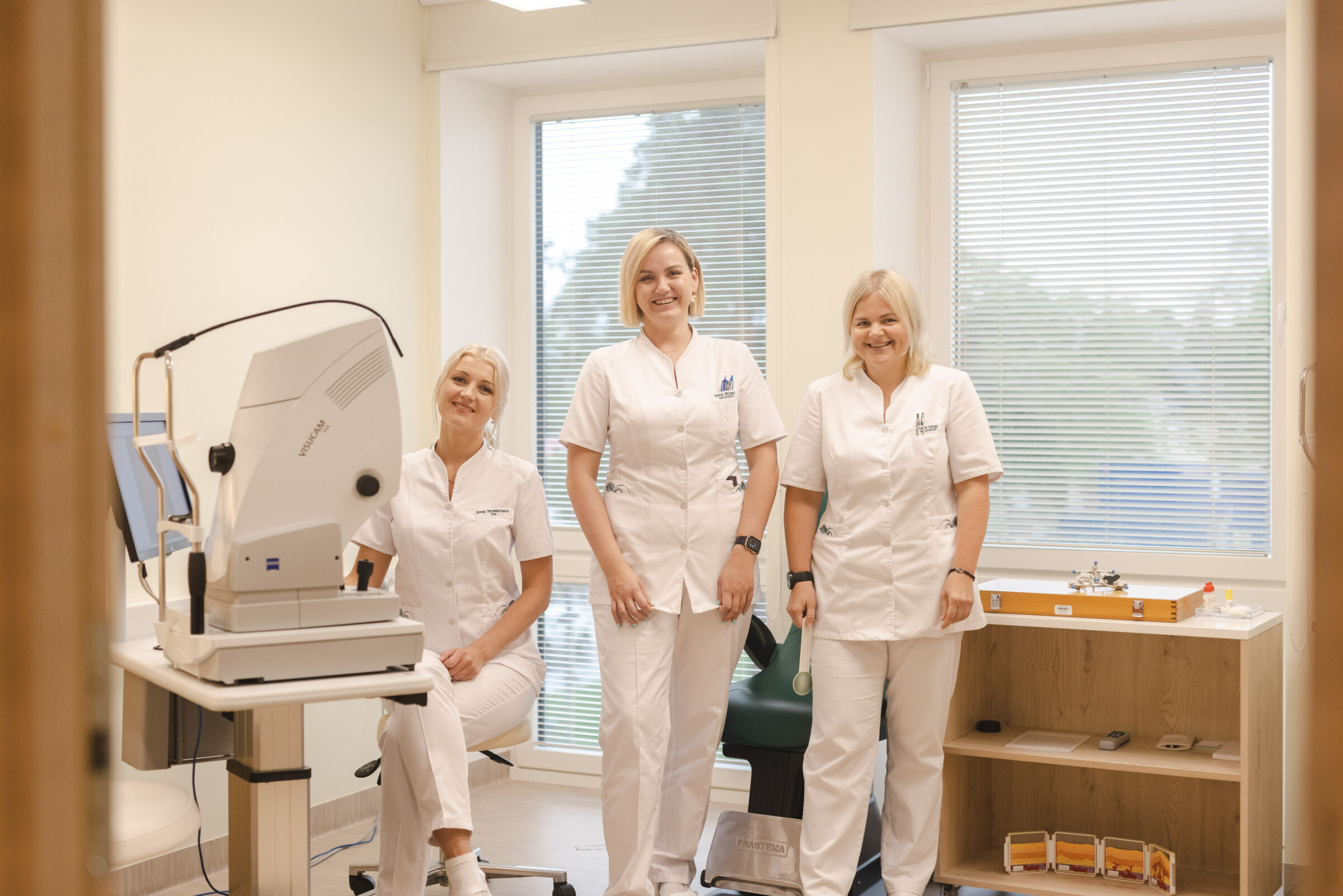Info and registration 655 6244 Open Mon 8.00–16.00 Tues.–Thurs. 8.00–18.00 Fri 8.00–16.00
Info and registration 655 6244 Open Mon 8.00–16.00 Tues.–Thurs. 8.00–18.00 Fri 8.00–16.00
NB! Diabetic ocular fundus changes are characterised by lesions developing at the periphery of the fundus. The patient may not realise that their eyes are diseased until it has reached macular region.


We offer two different examinations:
An optometrist will take photographs of the ocular fundus and perform an initial evaluation of the images. If there are very mild diabetic changes or no changes at all, the patient is advised to return after one year. If the changes are more severe, the patient should go to an ophthalmologist for further examination and treatment.
The longer a person has had diabetes, the more their eyes are at risk. The general advice is rather prevalent: check your blood pressure and blood sugar regularly, monitor your weight, exercise, and follow the treatment assigned by your doctor. The “key” to eye health is a healthy lifestyle and regular check-ups.
The eyes are affected by both type I and type II diabetes. Changes in the macula and retina occur. The macula is located in the middle of the retina and mainly affects vision in the central region of the eye. Because of this, we can see, read, and distinguish details. Diabetes can cause damage to the walls of the blood vessels at the base (fundus) of the eye, leading to swelling and bruising. The changes described are characteristic of the early stage of diabetic retinopathy – background retinopathy. However, if the capillaries at the base of the eye become deficient in oxygen, new blood vessels will form that tend to leak easily and also cause swelling and bruising. The proliferative stage begins, with a much more severe prognosis and requiring immediate intensive treatment with laser and/or intraocular injections.
Patients with diabetes are at risk of glaucoma at a much earlier age. It is important to detect these diseases early and always cooperate with your doctor to get the best possible treatment.
An optometrist will:
If the optometrist concludes that the patient has very mild signs of diabetic retinopathy or if the signs are absent, they will advise the patient to return for a subsequent check-up after one year.
If the optometrist discovers that the changes in retinopathy are more severe, they will redirect the patient to an ophthalmologist, who will decide if the patient needs to be further examined, treated, or re-examined after 3, 6, or 12 months.
The patient will also be redirected to a doctor if any non-diabetic fundus changes are discovered.
